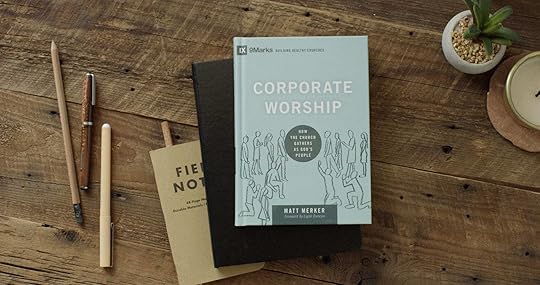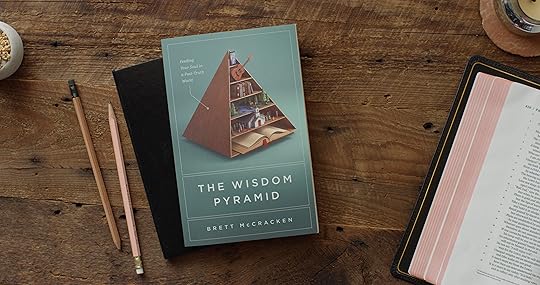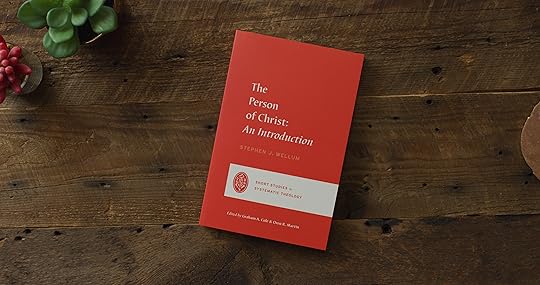Justin Taylor's Blog, page 11
March 3, 2021
A New Documentary on the Formation of R. C. Sproul
This morning Crossway released a new documentary entitled “Discovering the Holiness of God: The Formation of R. C. Sproul.” It is narrated by Steve Nichols, whose biography has just been released: R. C. Sproul: A Life. (WTS is offering the book for a limited time at 50% off.)
The 14-minute documentary focuses especially upon 1970s when Sproul founded the Ligonier Valley Study Center in the Laurel Mountains of the Alleghenies. As someone who was profoundly affected years ago by Sproul’s teaching on the holiness of God, I found the this brief film to be quite moving and encouraging.
Here is Michael Reeves after reading Nichols’s biography:
I couldn’t put this book down, for it doesn’t just tell the fascinating story of a life well lived; it takes you on R. C.’s own journey. Through it you see where the fire came from. Through it you get the thrill of soaking up his passion for the gospel of Christ, for biblical truth, and for the beauty of God in his holiness. But my hope for this book is not that it might provide a nice reunion for those of us who knew and loved R. C.; my prayer is that the Lord might use it to inspire more faithful Reformers, more God-fearing defenders and proclaimers of the faith, more like R. C. Sproul.
You can read chapter 1 online.
You can listen to the introduction and first chapter of the book online.
February 25, 2021
New Books and Bibles from Crossway This Month
Here are the new resources releasing from Crossway this month. The titles include The Wisdom Pyramid: Feeding Your Soul in a Post-Truth World by Brett McCraken and the ESV Panorama New Testament.
The Wisdom Pyramid: Feeding Your Soul in a Post-Truth WorldWith the quick tap of a finger we can access an endless stream of addictive information—sports scores, breaking news, political opinions, streaming TV, the latest Instagram posts, and much more. Accessing information has never been easier—but acquiring wisdom is increasingly difficult.
In an effort to help us consume a more balanced, healthy diet of information, Brett McCracken has created the “Wisdom Pyramid.” Inspired by the food pyramid model, the Wisdom Pyramid challenges us to increase our intake of enduring, trustworthy sources (like the Bible) while moderating our consumption of less reliable sources (like the Internet and social media). At a time when so much of our daily media diet is toxic and making us spiritually sick, The Wisdom Pyramid suggests that we become healthy and wise when we reorient our lives around God—the foundation of truth and the eternal source of wisdom.
“The foolishness of the world sometimes feels overwhelming. The Wisdom Pyramid lifts that fog away, revealing just how full God’s world is with goodness, truth, and beauty. By turning to these sources, in proper order, the wise will find folly fading into the background, and the world will look like—and be—a different place. Wisdom, as this book reminds us, is right there in front of us if only we will turn our eyes upon it.”
—Karen Swallow Prior, Research Professor of English and Christianity and Culture, Southeastern Baptist Theological Seminary; author, On Reading Well
The Person of Christ: An IntroductionSome people think of Jesus as a great prophet or a wise philosopher; others see him as an important religious leader or even a revolutionary. In this addition to the Short Studies in Systematic Theology series, Stephen Wellum challenges these claims as he argues for the divinity of Jesus according to Scripture and in line with creedal Christianity. In this brief introduction, we are invited to rejoice in the centrality of Christ—who as both God and man reconciles us to God.
“Stephen Wellum distills years of reflection and scholarly writing on Christology into an easy-to-read form. In brief compass, he leads the reader through the biblical foundations for the doctrine of Christ’s person and work and then through the historical debates in which the language of Christological orthodoxy was forged and refined. There is deep material here, but Wellum has a gift for expressing even the most subtle of theological issues with clarity and conciseness.”
—Carl R. Trueman, Professor of Biblical and Religious Studies, Grove City College
Practicing Thankfulness: Cultivating a Grateful Heart in All CircumstancesWhat we believe about God is evident in how we exhibit thankfulness for all he has done. In this book, pastor Sam Crabtree encourages us to express glad-hearted thankfulness for God’s unending provision in all circumstances. Through the daily practices of expressing gratitude—saying “thank you” to a neighbor, serving others in practical ways, or simply thanking God for his many gifts—we recognize the absolute and total lordship of God and his sovereignty over all things.
“After more than fifty years living as a quadriplegic, I can definitely say that godly gratitude is the key to contentment. This remarkable work provides thorough biblical support as to how God-focused gratitude alters a Christian’s orientation to himself, to others, and ultimately to the Lord himself. The pages are filled with practical guidelines to help a believer seize every life situation as a powerful opportunity to cultivate a glad and thankful heart.”
—Joni Eareckson Tada, Founder, Joni and Friends International Disability Center
What the Bible Says about Divorce and RemarriageThe topic of divorce is a complicated one, even among Christians. The Bible provides some clear answers, but gray areas remain. In this short booklet, theologian Wayne Grudem offers a thought-provoking analysis of what the Bible says—and doesn’t say—about divorce and remarriage.
“Fresh contributions to the longstanding debate over divorce and remarriage are rare. The relevant biblical texts have been picked over for centuries, and the lines of debate have hardened. And yet, somehow, Wayne Grudem has given us that rare, fresh insight into the Bible that changes everything. Grudem affirms the traditional Erasmian view, which allows for divorce and remarriage in cases of sexual immorality and desertion. But he also shows—based on new research on 1 Corinthians 7:15—that divorce and remarriage are permitted in cases of abuse as well. Grudem offers compassionate, biblical advice to those wrestling with the ethics of divorce. Anyone who wishes to understand what the Bible teaches about divorce and remarriage must reckon with this book.”
—Denny Burk, author, What Is the Meaning of Sex?
What the Bible Says about Birth Control, Infertility, Reproductive Technology, and AdoptionAdvances in technology offer couples wanting to have children more options than ever before—fertility treatment methods; prefertilization genetic screening; and embryo adoption. With all of these options available, plus the blessing of adoption, it can be difficult for Christian couples to determine which to consider when the Bible doesn’t give explicit direction. Wayne Grudem applies biblical truth and ethical reasoning to help Christians navigate these questions as they seek to live out God’s word in an ever-changing society.
“As a physician and medical educator, I’ve seen patients and medical students struggle with the issues addressed in this book. Wayne Grudem’s work presents a perfect blend of ethical, moral, technical, and biblical approaches to these critical topics. It will provide understandable guidance for health-care professionals as well as the general public.”
—Jacqueline Chadwick, MD, family physician; medical educator
The Heart of Anger: How the Bible Transforms Anger in Our Understanding and ExperienceChristopher Ash and Steve Midgley
We all struggle with anger at times: Our plans suddenly fall through, we lose a prized possession, or our reputation is called into question. More often than not, when anger knocks at the doors of our hearts we easily allow it to take over. But what if getting to the heart of our anger also reveals the way to transform it?
Christopher Ash and Steve Midgley address this question by bringing to bear what the whole Bible has to say about sinful anger—revealing that anger is the sinful response when something we value more than God is taken away or threatened. They reflect on biblical portraits of human anger, God’s righteous anger, and how only the gospel of Jesus Christ brings true freedom—transforming a heart of anger into a heart filled with the love of God.
“I found myself jotting down quote after quote as I read through this book filled with so much insight into the Scriptures, as well as insight into human behavior. Then I came to the question, ‘What can Christ do for our anger that anger management courses cannot?’ and in the pages that followed, I realized I had just struck gold—gospel hope for those who recognize the damage anger is doing in their lives and relationships and their need of a source outside themselves to deal with it.”
—Nancy Guthrie, Bible teacher; author, Even Better than Eden

Christians worship God at church every week, but many don’t know exactly what worship is or why they do it. For some, it’s a warm-up for the sermon. For others, it’s a “me-and-Jesus” moment. What is the biblically informed way to view corporate worship?
In this book, Matt Merker shows that corporate worship is the gathering of God’s people by his grace, for his glory, for their good, and before a watching world. He offers biblical insights and practical suggestions for making worship what it truly is meant to be: a foretaste of God’s people worshiping together for eternity in the new creation.
“Matt shows pastors, music leaders, and all of us how to keep our focus on the Bible’s priorities for corporate worship: God’s glory, the church’s growth, and proclaiming the gospel to the world. As Matt himself says, you do not need to agree with every specific application for this volume to be a major help in planning and preparing for the Sunday service. Rather, this book reminds us all to rediscover the wonderful reality that God gathers us together as a united body to hear his word and sing his praise.”
—Keith and Kristyn Getty, hymn writers; recording artists; authors, Sing! How Worship Transforms Your Life, Family, and Church
Jesus, Keep Me Near the Cross: Experiencing the Passion and Power of Easter (Redesign)From architecture to jewelry, the symbol of the cross is commonplace in our society. But how many of us truly appreciate the depth of meaning behind it? This collection of readings edited by Nancy Guthrie draws from the writings and sermons of twenty-five classic and contemporary theologians such as Martin Luther, Charles Spurgeon, John Piper, and Joni Eareckson Tada, inviting us to focus on the wonder of Christ’s sacrifice.

The ESV Panorama New Testament is designed for readers to engage with large sections of Scripture. By significantly expanding the size of each page while maintaining a more typical type size, this edition provides an optimal reading experience for those interested in viewing many of the New Testament books in their entirety on a panoramic, two-page spread. The unique layout features generous spacing between each line, which assists readers as they identify and mark repeated words or themes. This large-format New Testament is ideal for personal use, inductive Bible study, sermon preparation, and college and seminary classes.
ESV Gospel of John (Paperback, Black)The Gospel of John has always been one of the most-read books of the Bible, and this special paperback edition makes it easy to share with others. It includes a short gospel presentation, the ESV text of the Gospel of John, and favorite verses from this Bible book.
ESV Student Study Bible (TruTone, Black and Hardcover, Flowers Design)The ESV Student Study Bible is adapted from the ESV Study Bible and is ideally suited for students who are serious about God’s Word—who want to learn more about what the Bible teaches and how the Bible applies to all of life.
With 12,000 clear, concise study notes, the ESV Student Study Bible provides numerous other features—including nearly 900 “Did You Know?” facts, 120 Bible character profiles, and 10 topical articles. It also features a glossary of key terms, more than 80 maps and illustrations, an extensive concordance, and 80,000 cross-references. These and many other features make it the most comprehensive and content-rich student Bible available today.
The Book Amazon Does Not Want You to Read
You may have heard by now that Amazon has banned from all of their sales channels Ryan T. Anderson’s excellent book, When Harry Became Sally: Responding to the Transgender Moment (Encounter Books, 2018).
At First Things, Anderson writes about the controversy:
The people who did read the book discovered that it is an accurate and accessible presentation of the scientific, medical, philosophical, and legal debates surrounding the trans phenomenon. Yes, it advances an argument against transgender ideology from a viewpoint. But it doesn’t get any facts wrong, and it doesn’t engage in heated rhetoric.
Moreover, it was praised by experts: the former psychiatrist-in-chief at Johns Hopkins Hospital, a longtime psychology professor at NYU, a professor of medical ethics at Columbia Medical School, a professor of psychological and brain sciences at Boston University, a professor of neurobiology at the University of Utah, a distinguished professor at Harvard Law School, an eminent legal philosopher at Oxford, and a professor of jurisprudence at Princeton.
But for a heretic-hunting Left, none of that matters. It’s not about how you say it, or how rigorously you argue it, or how charitably you present it. It’s about whether you affirm or dissent from the new orthodoxy of gender ideology.
The editors at National Review call attention to Anderson’s intellectual credentials but also his calm, clear, and compassionate disposition as an advocate for truth in the public square:
Anderson, who is the president of the Ethics and Public Policy Center, represents what might be called the Princeton School of social conservatism, and he has published works in association with scholars such as Robert P. George, among others. He is a serious thinker and analyst (after Princeton he took a doctorate in political philosophy from Notre Dame), not a Breitbart troll.
They go on to write:
The book, published in 2018, recently has been removed from Amazon, as well as from Amazon subsidiaries Kindle, Audible, and AbeBooks. Amazon maintains, in theory, a policy of contacting publishers and discussing the removal of controversial books before acting, but Amazon has not followed that policy in this case. At least the traditional sort of book-burners felt the need to explain themselves.
Alan Jacobs comments:
To me, the most interesting point for reflection is this: The censors at Amazon clearly believe there is only one reason to read a book. You read a book because you agree with it and want it to confirm what you already believe. Imagine, for instance, a transgender activist who wants to understand the position held by Ryan Anderson and people like him in order better to refute it. That person can’t get a copy of the book through Amazon any more than a sympathetic reader like me can.
But another, deeper belief lies beneath that one: It’s that ideas like Anderson’s are not to be refuted but rather, insofar as it lies within Amazon’s vast power, erased — subjected to Damnatio memoriae. And the interesting thing about that practice is that it is simultaneously an assertion of power and a confession of weakness. Amazon is flexing its muscles, but muscles are all it has. Its censors don’t want anyone to read Anderson’s book because they know that they can’t refute it. They have no thoughts, no knowledge — only reflexes. And reflexes will serve their cause. For now.
Just the News was able to reach Amazon for comment and provide this update:
Amazon declined to provide any explanation, offering instead a link to its book content policy.
A review of those policies suggests that sometime in the last few months Amazon made a major change to the ways in which it moderates book content on its servers, imposing a much stricter standard on books than it had previously done.
The link provided by Amazon this week claims in part that, where books are concerned, the company “[doesn’t] sell certain content including content that we determine is hate speech … or other material we deem inappropriate or offensive.”
Internet archives show that as recently as August of last year, Amazon’s book content policy did not include any mention of “hate speech.” At that time, the company stated only that “we reserve the right not to sell certain content, such as pornography or other inappropriate content.”
On the older page, the company directed users to “guidelines for other categories of products,” such as products featuring “offensive and controversial material.” That policy stipulated in part that Amazon “does not allow products that promote, incite or glorify hatred,” but the rule explicitly noted that the policy did not apply to books.
The company did not reply to a followup query asking when the policy had been changed, and why.
So if you want to hear for yourself the sort of arguments that can get you banned from Amazon, watch the talk at the top of this post, or see the information about the book below. The book can be purchased directly from the publisher or from retailers like Barnes and Noble. (For now.)
SummaryCan a boy be “trapped” in a girl’s body? Can modern medicine “reassign” sex? Is our sex “assigned” to us in the first place? What is the most loving response to a person experiencing a conflicted sense of gender? What should our law say on matters of “gender identity”?
When Harry Became Sally provides thoughtful answers to questions arising from our transgender moment. Drawing on the best insights from biology, psychology, and philosophy, Ryan Anderson offers a nuanced view of human embodiment, a balanced approach to public policy on gender identity, and a sober assessment of the human costs of getting human nature wrong.
This book exposes the contrast between the media’s sunny depiction of gender fluidity and the often sad reality of living with gender dysphoria. It gives a voice to people who tried to “transition” by changing their bodies, and found themselves no better off. Especially troubling are the stories told by adults who were encouraged to transition as children but later regretted subjecting themselves to those drastic procedures.
As Anderson shows, the most beneficial therapies focus on helping people accept themselves and live in harmony with their bodies. This understanding is vital for parents with children in schools where counselors may steer a child toward transitioning behind their backs.
Everyone has something at stake in the controversies over transgender ideology, when misguided “antidiscrimination” policies allow biological men into women’s restrooms and penalize Americans who hold to the truth about human nature. Anderson offers a strategy for pushing back with principle and prudence, compassion and grace.
Table of ContentsIntroduction
Our Transgender MomentWhat the Activists SayDetransitioners Tell Their StoriesWhat Makes Us a Man or a WomanTransgender Identity and Sex “Reassignment”Endorsements“During this ‘transgender moment,’ a government-enforced tyranny of false presumptions about nature besieges the American family. When Harry Became Sally provides the empirical information needed to refute the transgender suppositions, and—in a most original way—makes historic sense of this social misdirection by noting how the ‘gender-fluid’ pseudo-scientific claims of today’s transgender ideologues derive from dubious arguments previously passed around amongst second-wave feminists. Learn from Ryan Anderson how another craze about the workings of the mind has come to beset American households and put thousands of people at risk.”
—Paul McHugh, University Distinguished Service Professor of Psychiatry, Johns Hopkins University School of Medicine
“When Harry Became Sally is an eminently readable and insightful guide for all who find themselves perplexed by today’s debates on gender identity. Ryan Anderson’s analysis of the ideas that are fueling the transgender movement, their human costs and their political implications will be a valuable resource for parents, educators and policy makers.”
—Mary Ann Glendon, Learned Hand Professor of Law, Harvard University, and author of Rights Talk and A Nation Under Lawyers
“For an informed and sensitive presentation of gender identity issues, When Harry Became Sally is a must-read book. It is especially a must for those in psychiatry, psychology and counseling.”
—Paul Vitz, Professor Emeritus of Psychology, New York University, and Senior Scholar, Institute for the Psychological Sciences
“I always read Ryan Anderson with great admiration. When Harry Became Sally is an always focused, informative, fair-minded, lucid and fact-based guide to just and reasonable policies in place of government– and corporation-mandated falsification of science, medicine, public records and history; suppression of free speech and family rights; and many-sided, often irreversible injustice to the vulnerable.”
—John Finnis, Professor of Law & Legal Philosophy Emeritus, University of Oxford
“‘Do no harm’ is a fundamental tenet of medical ethics. But sadly—as shown by Ryan Anderson’s careful examination of the research—people with gender dysphoria are now commonly given treatments that involve grave health hazards and few (if any) lasting benefits. Regardless of political persuasion, all concerned citizens, especially parents, policymakers, and healthcare professionals, should give serious consideration to the evidence presented in this thoughtful and balanced book.”
—Melissa Moschella, Assistant Professor of Medical Ethics, Department of Medicine, Columbia University
“Ryan Anderson forthrightly calls out the suspension of disbelief that has led us into ever more bizarre denials of reality, blindfolding our eyes and our heads in the name of political ideology and ensuring the suffering of the mentally ill. Everyone concerned with the welfare of children should read When Harry Became Sally.”
—Margaret A. Hagen, Professor of Psychological and Brain Sciences, Boston University
“People who experience gender dysphoria deserve to be treated with compassion, kindness, and respect—just like everyone else. It is wrong to despise them, ridicule them, or disrespect them in other ways. As Ryan Anderson shows in his rigorously argued critique of transgender ideology, we can speak and stand up for the truth while loving those who identify as transgender as our neighbors. When Harry Became Sally confirms Anderson’s standing as one of our nation’s most gifted young intellectuals, and without doubt the most fearless.”
—Robert P. George, McCormick Professor of Jurisprudence, Princeton University.
“Ryan Anderson takes up the challenging topic of the ‘transgender moment’ in a clear and biologically well-informed manner. He writes in a thoughtful and accessible manner, and he succeeds in his goal of providing ‘a sober and honest survey of the human costs of getting human nature wrong.’ When Harry Became Sally raises important questions for anyone who is sincerely concerned about the wellbeing of those struggling with their gender identity.”
—Maureen Condic, Associate Professor of Neurobiology and Anatomy, University of Utah
The Trinity: Gregory of Nazianzus on the Three and the One
Gregory of Nazianzus (c. 329–390):
Keep I pray you the good deposit,
by which I live and work, and
which I desire to have as the companion of my departure;
with which I endure all that is so distressful, and despise all delights;
the confession of the Father and the Son and the Holy Ghost.
This I commit unto you today;
with this I will baptize you and make you grow.
This I give you to share, and to defend all your life,
the one Godhead and power, found in the three in unit, and comprising the three separately;
not unequal, in substances or natures, neither increased nor diminished by superiorities nor inferiorities;
in every respect equal, in every respect the same;
just as the beauty and the greatness of the heavens is one;
the infinite conjunction of three infinite ones, each God when considered in himself;
as the Father, so the Son;
as the Son, so the Holy Spirit;
the three one God when contemplated together;
each God because consubstantial;
one God because of the monarchia.
No sooner do I conceive of the one than I am illumined by the splendor of the three;
no sooner do I distinguish them than I am carried back to the one.
When I think of anyone of the three I think of him as the whole, and my eyes are filled, and the greater part of what I am thinking escapes me.
I cannot grasp the greatness of that one so as to attribute a greater greatness to the rest.
When I contemplate the three together, I see but one torch, and cannot divide or measure out the undivided light.
—Gregory Nazianzen, Orations 40.41.
February 23, 2021
The Yawn of JEDP
I first heard of the “Documentary Hypothesis” as an undergraduate freshman study of religion major at a public university. Two of my professors, both trained at Harvard Divinity School, drew upon the work of Julius Wellhausen, who argued in 1878 that the first five books of the Bible came from four major documentary sources:
Jawhist (used the name Yahweh for God), mid-ninth century BC, southern kingdom of JudahElohist (used the word Elohim for God), eighth century, northern kingdom of IsraelDeuteronomic (used the book of Deuteronomy), seventh century, during the reign of JosiahPriestly (Leviticus and other parts with a priestly interest), fifth and sixth centuries, Babylonian exile and afterThese various sources were stitched together over the centuries to provide a literary whole that contained contradictions.
My professors—who were not biblical scholars—didn’t offer in-depth arguments. This wasn’t an area of speciality for them. But they were quite confident in it nonetheless, and it was the sort of thing that could easily shake the confidence of any of the students who assumed that this was the Word of God.
Old Testament scholar Duane Garrett—whose book Rethinking Genesis has been called “the most convincing refutation of the documentary hypothesis now in print”—writes:
A creature stalks the halls of biblical studies. It is routinely raised up from the grave in classrooms and it haunts textbooks and monographs that deal with the Hebrew Scriptures. Wherever it roams, it distorts the analysis of the text of the Bible, confounds readers, and produces strange and irrational interpretations. This undead creature sometimes goes by the quasi-mystical sounding sobriquet “the JEDP theory,” but it is better known by its formal name, the documentary hypothesis. The time has come for scholars to recognize that the documentary hypothesis is dead. The arguments that support it have been dismantled by scholars of many stripes—many of whom have no theological commitment to the Bible. The theory is, however, still taught as an established result of biblical scholarship in universities and theological schools around the world. Books and monographs rooted in it still frequently appear. Laughably, some of these books are touted for their “startling new interpretations” of the history of the Bible while in fact doing little more than repackaging old ideas. If the sheer volume of literature on a hypothesis were a demonstration of its veracity, the documentary hypothesis would indeed be well established. Nevertheless, while the dead hand of the documentary hypothesis still dominates Old Testament scholarship as its official orthodoxy, the cutting edge research of recent years has typically been highly critical of the theory.
In his new commentary on the book of Exodus, Christopher Wright deals briefly with the theory, noting that “the whole scheme has come under severe scholarly critique and outright rejection in some quarters. There is agreement on all sides (including conservative ones) that the Pentateuch is a complex and composite piece of literature that incorporates various kinds of writing, sources, and topics around a broad thematic unity. But the neat linear scheme of cleverly interwoven documents stretched out over Israel’s reconstructed history is no longer convincing, and many alternative accounts of how it all came together now vie for acceptance in the biblical academy.”
Wright adds why he has never had much use for the theory himself:
Speaking for myself, I never did find the JEDP scheme convincing, and not just out of loyalty to my evangelical understanding of the nature of Scripture (which did not, in my view, compel me to accept every traditional view of the authorship of biblical texts, unless clearly stated in the Bible itself, or to reject per se the assumption that beneath the final text of the books we have in our Bible lie earlier source materials). Rather, my skepticism was on two fronts.
On the one hand, the whole scheme seemed to me highly unlikely as comparative evidence of such “cut and paste” processes in any contemporary literature. It seemed a very modern and Western way of conceiving how “authors” might go about their work with “documents” on a desk in front of them, and even in that context to be based on very dubious criteria for confident source identification.
On the other hand, I never recall finding such source dissection and allocations of biblical texts of any benefit whatsoever in the exegetical and hermeneutical task—that is, of discerning the meaning, intentions, and implications of the text for anyone who comes to it as in some sense authoritative Scripture with a view to understanding and communicating its message today. (Christopher J. H. Wright, Exodus, The Story of God Bible Commentary, ed. Tremper Longman III and Scot McKnight (Grand Rapids: Zondervan Academic, 2021], 4–5.)
In sum: (1) it is implausible, and (2) it does not help.
The great scholar and rabbi Umberto Cassuto (1883–1951)—who held the chair of biblical studies at the Hebrew University of Jerusalem and wrote commentaries on Genesis and Exodus—gave a series of eight lectures in 1940 offering one of the first mainstream critiques of the documentary hypothesis, published as The Documentary Hypothesis and the Composition of the Pentateuch. His argument was that the documentary hypothesis rested on five pillars. He then sought to show, in detail, that upon closer examination all five pillars were without substance. As a result, “this imposing and beautiful edifice has, in reality, nothing to support it and is founded on air. ”
Here is a summary of his conclusions:
Pillar #1: the variations in the use of the divine names. “These changes depended on the primary signification of the Names and on the rules governing their use in life and literature, rules that applied to the entire body of biblical literature and even to post-biblical Hebrew writings, and are rooted in the literary traditions common to the peoples of the ancient East. Since we saw that these factors fully solved the problem of the changing of the divine names—leaving nothing unexplained—on the basis of principles that are radically different from those of the documentary theory, we came to the conclusion that the first pillar is void of substance.”
Pillar #2: the inequalities of language and style. “These linguistic disparities, insofar as they really existed, could be explained with the utmost simplicity by reference to the general rules of the language, its grammatical structure, its lexical usages, and its literary conventions—general rules that applied equally to every Hebrew writer and every Hebrew book. We thus saw that in this respect, too, there was no question of different documents, and that the second pillar was only an empty delusion.”
Pillar #3: the differences in the subject matter of the sections. “Where there were actual discrepancies between the sections, they were not of a kind that could not be found in a homogeneous work. On the contrary, such incongruities were inevitable in a multi-faceted book like the one before us, which contains materials of varied origin and character, and consequently presents its themes from different viewpoints. Hence we concluded that the third pillar was also incapable of withstanding criticism.”
Pillar #4: the duplications and repetitions. “Underlying both of them was a specific intention, which not only was reflected in the final redaction of the sections but was evident even in their original composition. We consequently decided that the fourth pillar was not stronger than the preceding three.”
Pillar #5: the composite sections. “This hypothesis relied on evidence that in truth did not point to a composite text; on the contrary, exact study revealed unmistakable and conclusive indications of a close connection between the parts of the section that were considered to belong to different sources. From all this, we judged the last pillar to be likewise without foundation.”
February 18, 2021
The Gospel Animated: The Greatest News in the World in 2 Minutes
Ordinary Folk is a motion design and animation studio based in Vancouver, founder by creative director Jorge R. Canedo E.
They wrote about their latest project:
When Christianity Explored approached us with this task, we were intimidated (but also incredibly excited) by the opportunity to tell this story that has been told millions of times in a fresh way — while keeping the core message clear. Blending every kind of animation we know from cel to 3d, it’s been one of the most challenging projects we’ve worked on to date — made possible by all the amazing designers and animators that partnered with us to make it happen.
You can watch it above, narrated by Pastor Thabiti Anyabwile.
Six Definitions of Worship
Harold Best defines worship most broadly, reminding us that there is a commonality to all aspects of “worship,” whether the object be worthy of our worship or not.
Worship is
the continuous outpouring of
all that I am,
all that I do, and
all that I can ever become
in light of a chosen or choosing god.
Jonathan Gibson focuses on the normative aspect of worship. It is explicitly Trinitarian, and he makes the rare moves of including angelic worship; including the past, the present, and the future; and embedding a worshipful response within the definition itself.
Worship is
the right, fitting, and delightful response of moral beings
—angelic and human—
to God the Creator, Redeemer, and Consummator,
for who he is as one eternal God in three persons—Father, Son, and Holy Spirit—and
for what he has done in creation and redemption, and
for what he will do in the coming consummation,
to whom be all praise and glory, now and forever, world without end. Amen.
Daniel Block discusses the nature of true worship, emphasizing the acts of worship.
True worship involves
reverential acts of homage and submission before the divine Sovereign
in response to his gracious revelation of himself and
in accord with his will.
Bruce Leafblad puts the goal of communion with God front and center and includes the grace of God and the use of both mind and heart.
Worship is
communion with God
in which believers, by grace, center their
minds’ attention and
hearts’ affection
on the Lord,
humbly glorifying God in response to his greatness and his word.
John Piper distinguishes between the inner essence and the outward expression of worship, connects the notional and the affectional, and uniquely (among the definitions cited here) including note only acts of praise but acts of love as well.
The inner essence of worship is
to know God truly
and then respond from the heart to that knowledge by
valuing God,
treasuring God,
prizing God,
enjoying God,
being satisfied with God above all earthly things.
And then that deep, restful, joyful satisfaction in God overflows in
demonstrable acts of praise from the lips and
demonstrable acts of love in serving others for the sake of Christ.
D. A. Carson gives a definition that includes the use of mind, affection, and will and is one of the few that explicitly mentions the Holy Spirit.
Christian worship is
the response of God’s redeemed people to His self-revelation that exalts God’s glory in Christ
in our minds, affections, and wills,
in the power of the Holy Spirit.
February 1, 2021
A Conversation with Tim Keller: On Cancer, Book Recommendations, Celebrity, and the Reformed Resurgence
Kevin DeYoung, Collin Hansen, and I co-host the Life and Books and Everything podcast.
Our most recent episode is an interview with Tim Keller (b. 1955), the founding pastor of Redeemer Presbyterian Church in New York City, the chairman and co-founder of Redeemer City to City, the co-founder of The Gospel Coalition, and a New York Times bestselling author.
To each of us fortysomethings, he is a gracious friend, an insightful counselor, a wise encourager, and a father in the faith.
We talked about his cancer, what books shaped him, defining evangelicalism, Christian celebrity, and Brad Vermurlen’s important new scholarly study, Reformed Resurgence: The New Calvinist Movement and the Battle Over American Evangelicalism (Oxford University Press, 2020).
Here are the timestamps for the episode:
Promoting, Celebrating, and Articulating Systematic Theology [0:01–1:30]
Keller: I’m Fighting Sin Not Cancer [1:30–17:03]
Keller’s Top Book Recommendations for Forming Pastors and Leaders [17:03–21:37]
Tim Keller’s Other Spiritual Gifts [21:37–27:13]
Why Keller and Carson Have a Soft Spot for British Evangelicalism [27:13—34:20]
Reading at a Rural Church; Eating in a Big City [34:20 –39:41]
Reformed Resurgence: The Young, Restless, and Reformed Movement [39:41 – 51:06]
Evangelical Celebrities [51:06 – 54:33]
How to Define Evangelicalism: Models vs. Institutions [54:33–1:00:34]
More About the Pastor Celebrity Experience [1:00:34–1:10:20]
Post-Movement Evangelistic Strategies [1:10:20–1:12:25]
Encouragement [1:12:25–1:15:20]
For the three of us, it was a deeply edifying, encouraging, insightful episode. We hope you find it to be the same.
January 28, 2021
A Great Way to Help Your Family Hide God’s Word in Their Heart
For more, see Seeds Family Worship.
January 25, 2021
Promises (feat. Joe L Barnes & Naomi Raine)
 The official music video for “Promises” featuring Joe L. Barnes and Naomi Raine by Maverick City Music.
The official music video for “Promises” featuring Joe L. Barnes and Naomi Raine by Maverick City Music.
Justin Taylor's Blog
- Justin Taylor's profile
- 44 followers












